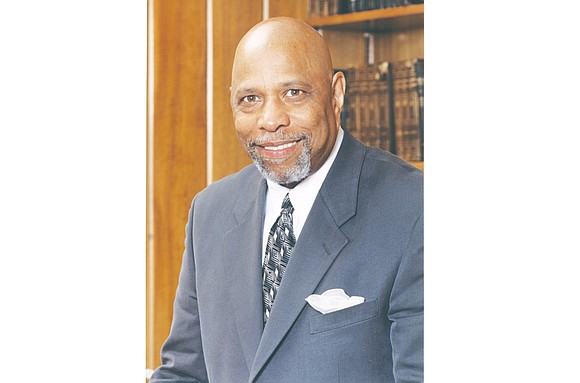Hustling backward in Richmond
2/17/2018, 9:48 a.m.
Sa’ad El-Amin
Richmond City Council voted 7-2 on Monday night to increase the meals tax 1.5 percent, expecting annual revenue of $9 million. This will be leveraged to borrow $150 million over five years and earmarked for renovating and building new schools for Richmond Public Schools.
As I watched the City Council public hearing, it was clear that all council members showed little grasp of the facts or other important data about the actual needs and/or uses of these funds. We witnessed a true Donald Trump moment where the facts were not allowed to get in the way of making a hasty and ill-advised decision. In fact, a motion to postpone the vote to collect important facts and more closely study the issues was defeated and the ordinance passed.
Council members either ignored, overlooked or just did not care that additional funds would be needed, as it should have been apparent that $150 million was like using a fig leaf to hide an elephant, especially given reliable estimates that the price tag to accomplish the task of improving RPS infrastructure would be about $800 million.
There was no acknowledgment that meals taxes are regressive and place the major burden on poor and working poor who spend more of their disposable incomes buying prepared meals. The discussion also was devoid of any suggestion that a larger portion of the revenue generated from meals taxes be earmarked for renovation and refurbishment of public schools or how revenues from the current 6 percent meals tax are being spent and who are the recipients of these expenditures.
There was also no discussion about raising revenue through an increase in real estate taxes, which is a progressive tax because those who have greater wealth are better able to absorb a tax hike.
Such a discussion certainly would have injected race because 75 percent of the students attending RPS are African-American while those with higher incomes in Richmond are overwhelmingly white people. This is the primary reason why there has been little if any interest in investing in a school system where white children are less than 10 percent of the student population.
The unspoken issue in the City Council chamber Monday night was the ever-growing disparity in the run-down RPS buildings and facilities compared to Henrico, Chesterfield and Hanover counties. Looming large in the room was the resuscitation and rearing of the ugly head of Jim Crow as embodied in the separate and unequal ruling of the U.S. Supreme Court in the 1896 decision Plessy v. Ferguson, which later was overturned by the 1954 Brown v. Board of Education decision.
The approved ordinance put into place for the foreseeable future a Plessy scenario in public education in the Greater Richmond region.
This ordinance has put into play the familiar paradigm that comes after every failure and refusal to address the issues African-Americans face: (1) denial or minimizing the problem or issue; (2) inadequate remedies that totally fail to address or fix the problem or issue; (3) African-American leadership that has been cajoled into supporting and endorsing inadequate solutions; and, (4) decision-makers who will not be around when the full consequences of the inadequate fix or remedy is manifested, leaving us high and dry.
Some argued in supporting the ordinance a lesser of two evils logic, stating or implying $150 million was better than getting nothing. This is one reason we have so little.
Last night proved what the old folks always told us: “The more things change, the more they remain the same.”
The writer is a former member of Richmond City Council and president of Strategic and Litigation Consultants.






